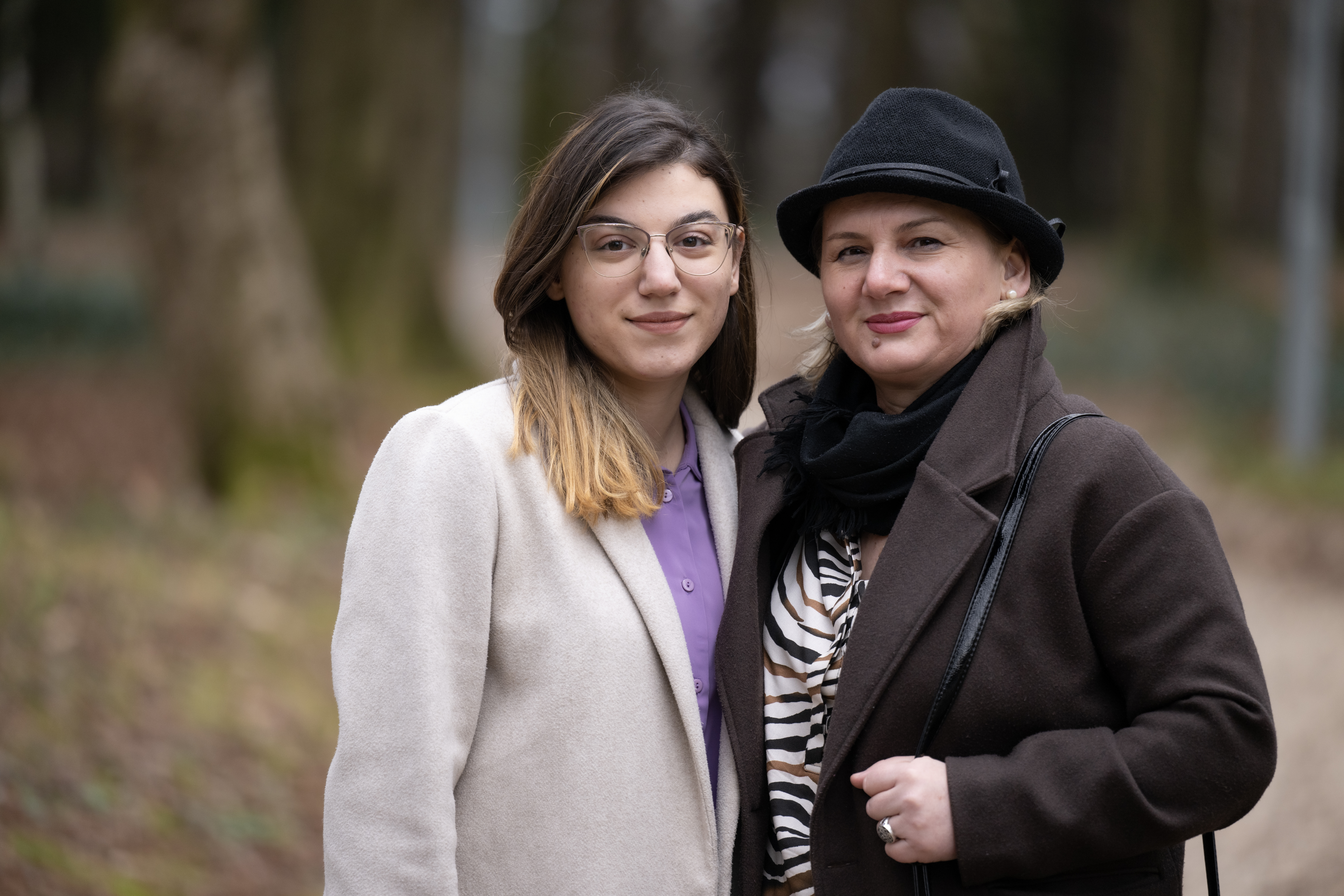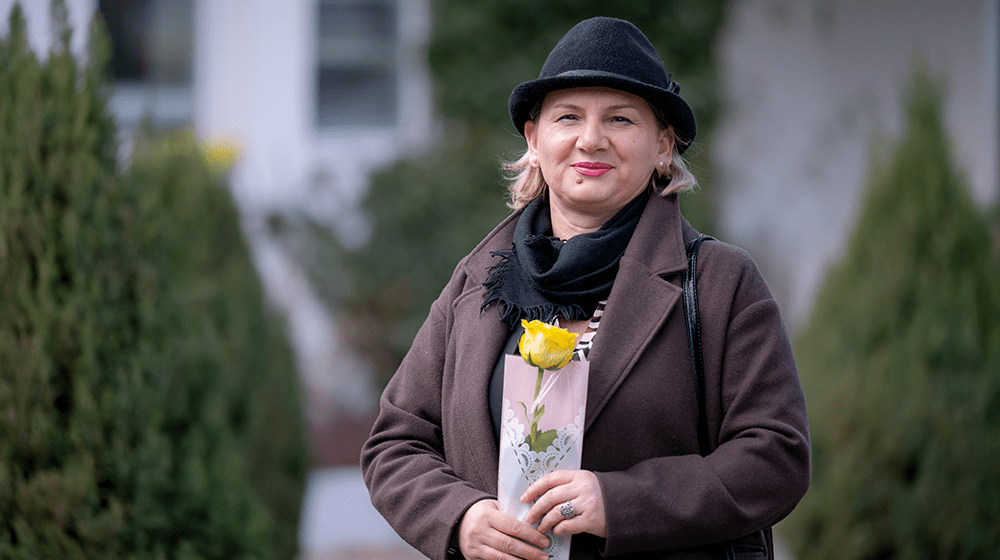“I pray, I don’t know what to think or say, hardship, disappointment, getting to see the real faces of people. Whether night or day, I don’t live like I should…”
Arbnesha Kelmendi Draga, a language teacher and a published poet from Pejë/Peć in Kosovo, wrote these words two days before going into surgery for cervical cancer.
Ms, Kelmendi Draga is lucky. She is a cervical cancer survivor.
Her cancer was detected and diagnosed at a local public clinic with the ability to conduct Pap tests and qualified medical staff who know when and how to conduct the test.After the cancer was detected, Ms Kelmendi Draga was operated upon within a week.

Preventable and curable
Cervical cancer is caused by the human papillomavirus and it is the most common cancer among women globally, causing over 300,000 deaths in 2020 alone. It is, however, highly treatable if detected in time and the Pap test is the foremost means of detection. In addition, the HPV vaccine - administered mostly during adolescence , which together with the testing means 90 per cent of women survive cervical cancer. Therefore, the availability of both the test and the vaccine is crucial so that health systems can treat the cancer. It is equally important that women between 21 and 65 get tested at least once a year as part of a regular health check-up.
The Kosovo screening programme
UNFPA in Kosovo, together with the Ministry of Health, National Institute of Public health, the National Board on Cancer Control and our implementing partner NGO Action for Mothers and Children, is running an initiative to establish a cervical cancer screening programme in the primary health care system. The programme involves providing Pap tests and training medical staff to administer it. So far, the programme has been implemented in six municipalities, including the one where Ms. Kelmendi Draga lives.
The UNFPA programme has also produced standard operating procedures and has supported the Ministry of Health in developing clinical guidelines and protocols on cervical cancer screening. Awareness raising directed at both the professionals and the general public has also been a crucial component. As a result, since 2016, over 15,000 women have undergone the PAP test, and according to the results obtained, some have been referred for additional tests or treatment as needed. In 2023, 94 women (4.2%) out of 2,246 who underwent the PAP test tested positive for abnormal epithelial cells and were subsequently referred for further tests and treatment.
In addition, UNFPA is substantially engaged in support to the National Board on Cancer Control in the process of finalizing the National Programme on Cancer Control (NBCC). Beyond the PAP test program and its extension to municipalities across Kosovo, UNFPA’s support in this framework includes assistance in the formal revision of the clinical guidelines pertaining to cervical cancer screening and treatment. This will enhance the quality and efficiency of managing all cases related to cervical cancer, thereby contributing to improved healthcare outcomes in this domain.
Ms Kelmendi Draga has a simple message for other women and girls in Kosovo.
“Get checked regularly, early detection saves lives!”
Watch the story in Albanian Watch the story in Serbian Watch the story in English
Ms, Kelmendi Draga is lucky. She is a cervical cancer survivor.


